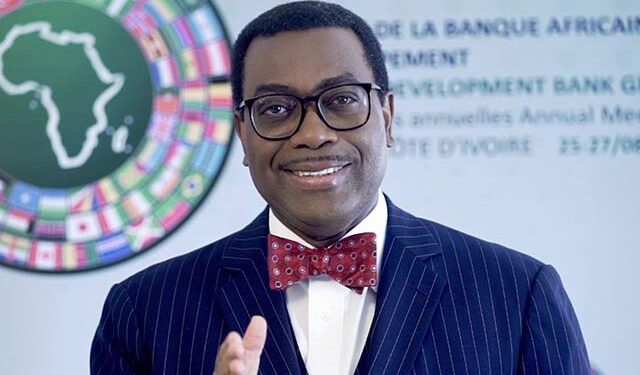African Development Bank criticizes slow debt treatment processes for Ghana, other debt-distressed nations
President of the Afircan Development Bank (AfDB) Dr. Akinwumi Adesina, speaking at the 59th Annual Meetings of the African Development Bank (AfDB) in Kenya, articulated significant concerns regarding the protracted and cumbersome debt resolution mechanisms for Ghana and other debt-distressed African nations.
Despite the implementation of the G20 framework, which has facilitated some degree of coordination among official creditors and commercial lenders, Dr. Adesina underscored that the overall debt treatment process remains laborious and insufficiently responsive to the urgent needs of these economies.
Addressing the media, Dr. Adesina emphasized the disparity in requirements among Paris Club members, non-Paris Club members, and commercial lenders, which complicates the resolution process.
He acknowledged that the framework has yielded positive outcomes for countries such as Chad, Zambia, Ghana, and Ethiopia by establishing credit committees. However, he stressed that the consensus across stakeholders is clear: the process is excessively slow.
“I understand it takes a long, it’s a very difficult process because you have Paris club members, you have non Paris club members, and you have commercial lenders and their needs are quite different from those of official creditors. But it’s helped, it’s helped with Chad, it’s helped with Zambia, it’s helped with Ghana, and it’s working also on Ethiopia in putting together the various credit committees that said that process, everybody agrees, is too slow,” he quipped.
The AfDB President called for a comprehensive reform of the global financial architecture to expedite and streamline debt resolution mechanisms, likening Africa’s debt situation to stopping a hemorrhage.
“If you want to save someone’s life, you need to stop the bleeding faster, because delay could be fatal,” he stated. This metaphor aptly illustrates the dire need for more prompt and effective interventions to address the debt crises afflicting numerous African nations.
Reflecting on historical precedents, Dr. Adesina cited the 1990s, when many African countries experienced a decade-long economic stagnation due to inadequate debt relief frameworks, such as the Highly Indebted Poor Countries (HIPC) initiative.
The annual meeting, themed “Africa’s Transformation, the African Development Bank Group, and the Reform of the Global Financial Architecture,” aims to foster dialogue on these urgent issues. Over the next few days, heads of state, central bank governors, and representatives from various multilateral institutions will convene to address the multifaceted challenges facing African economies. The discussions will also encompass structural reforms necessary to enhance the international financial architecture.
Moreover, climate adaptation and increased agricultural financing are pivotal topics on the agenda. The AfDB posits that bolstering these areas is essential for achieving sustainable growth. The meeting will also serve as a platform for stakeholders to review the bank’s performance over the past year and to formulate strategic decisions that will shape its future trajectory.








